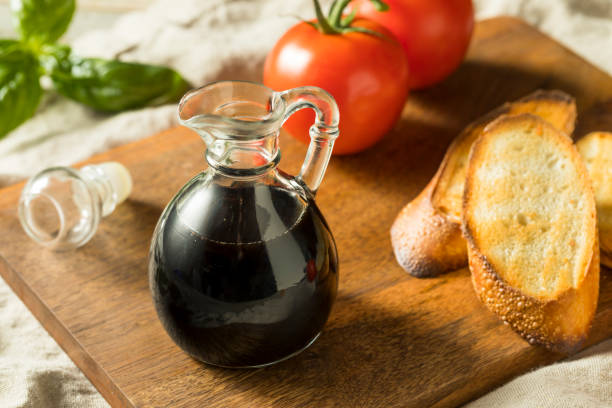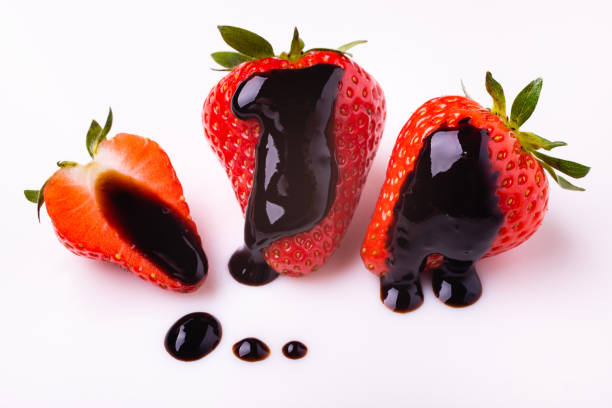Beyond the Bottle: The Role of Balsamic Vinegar in Culinary Innovation and Tradition
In the world of culinary delights, few ingredients hold as much prestige and flavour as balsamic vinegar. Beyond being a mere condiment, balsamic vinegar plays a vital role in both culinary innovation and tradition. In this article, we'll delve deep into the rich history, production methods, culinary applications, and the ever evolving role of balsamic vinegar in modern gastronomy.
A Taste of Tradition: The Rich History of Balsamic Vinegar
Balsamic vinegar, rooted in ancient Rome, embodies centuries of culinary tradition and expertise. From its humble origins to its global acclaim, its journey reflects a rich tapestry of taste and tradition.
Balsamic vinegar's origins can be traced back to ancient Rome, where it was valued for its purported medicinal properties and distinctive flavour.
During the Middle Ages in Italy, particularly in the region of Emilia Romagna, balsamic vinegar began to be produced in a manner similar to its modern form.
Families in areas like Modena and Reggio Emilia have upheld the tradition of aging balsamic vinegar in wooden barrels, often passed down through generations.
Secret recipes and techniques for crafting balsamic vinegar have been closely guarded within these families, contributing to its mystique and allure over centuries.
Crafting Liquid Gold: The Artisanal Production Process
From the careful selection of grapes to the slow ageing process in wooden barrels, each stage contributes to the creation of this liquid gold, a symbol of artisanal excellence and culinary delight.
Best balsamic vinegar is crafted with meticulous attention to detail and a deep reverence for tradition.
The process begins with the careful selection of grapes, typically Trebbiano or Lambrusco varieties, chosen for their high sugar content and flavour profile.
After harvest, the grapes are crushed and the resulting juice, or "must," is cooked down over an open flame to concentrate its flavours and sugars.
The must is then transferred to a series of wooden barrels, often made from oak, cherry, chestnut, or other hardwoods, each imparting its own nuances to the final product.
Over the course of years or even decades, the vinegar undergoes a slow transformation as it ages in the barrels, developing layers of complexity and richness.
From Modena to the World: Global Influence and Recognition
Originating in the historic Italian province of Modena, balsamic vinegar has transcended borders to become a cherished ingredient on tables worldwide. Its versatility and distinctive flavour have earned it recognition in cuisines across the globe, marking its journey from local tradition to international acclaim.
While balsamic vinegar originated in the Italian provinces of Modena and Reggio Emilia, its popularity has transcended borders, becoming a beloved staple in kitchens worldwide.
Its versatility in both sweet and savoury dishes has contributed to its widespread acclaim, with chefs and home cooks alike incorporating it into an array of culinary creations.
Balsamic vinegar has become synonymous with gourmet cuisine, earning its place on the tables of fine dining establishments and home kitchens alike.
Its global recognition as a premium ingredient has led to the production of balsamic style vinegars in regions outside of Italy, although traditionalists argue that true balsamic vinegar can only be produced in the designated regions of Modena and Reggio Emilia.
One of the most intriguing aspects of balsamic vinegar is its ability to elevate the flavour of a dish with just a few drops. Its sweet and tangy profile makes it a versatile ingredient in both traditional and modern cuisine. Here are just a few ways balsamic vinegar can be used in the kitchen:
Drizzled over fresh strawberries or vanilla ice cream for a simple yet elegant dessert.
Mixed with olive oil and herbs to create a flavourful salad dressing.
Reduced into a thick glaze to add depth to roasted vegetables or grilled meats.
Paired with cheese, such as Parmigiano Reggiano or Gorgonzola, for a delightful appetiser.
Added to sauces and marinades to impart a rich, caramelised flavour.
Innovating Tradition: Modern Trends in Balsamic Vinegar
While balsamic vinegar has a long history steeped in tradition, modern chefs and producers are finding innovative ways to reinterpret this classic ingredient. From aged balsamic infused with fruits or herbs to balsamic reductions flavoured with spices or botanicals, there's no shortage of creativity in the world of balsamic vinegar.
Beyond the Kitchen: Balsamic Vinegar in Health and Wellness
Balsamic vinegar isn't just a culinary delight; it also offers potential health benefits. Studies suggest that balsamic vinegar may help lower cholesterol levels, improve digestion, and regulate blood sugar levels. Its antioxidant properties may also contribute to overall health and wellbeing, making it a welcome addition to any balanced diet.
The Future of Balsamic Vinegar: Sustainability and Innovation
As consumer preferences shift towards more sustainable and ethically produced foods, the balsamic vinegar industry is evolving to meet these demands. From ecofriendly packaging to organic farming practices, producers are embracing sustainability initiatives to ensure the longevity of this cherished ingredient. Additionally, ongoing research and innovation continue to push the boundaries of what's possible with balsamic vinegar, paving the way for new and exciting culinary experiences.
In conclusion, balsamic vinegar stands as a testament to the marriage of tradition and innovation in the culinary world. From its humble beginnings in ancient Rome to its status as a global gourmet staple, balsamic vinegar continues to captivate taste buds and inspire culinary creativity around the world. Whether drizzled over a Caprese salad or used to glaze a rack of lamb, balsamic vinegar adds a touch of sophistication and depth to any dish, reminding us of the rich tapestry of flavours that make up our culinary heritage.
Balsamic Vinegar FAQs: Answering Your Burning Questions
Q: Is there a difference between traditional balsamic vinegar and commercial balsamic vinegar?
A: Yes, traditional balsamic vinegar is aged for a minimum of 12 years using traditional methods, resulting in a complex and nuanced flavour profile. Commercial balsamic vinegar, on the other hand, is often made using shortcuts such as the addition of caramel or other flavourings.
Q: How should I store balsamic vinegar?
A: Balsamic vinegar should be stored in a cool, dark place away from heat and sunlight. Once opened, it can be stored at room temperature for several months without losing its flavour or quality.
Q: Can balsamic vinegar go bad?
A: While balsamic vinegar does not technically spoil, its flavour may degrade over time. To ensure the best quality, it's recommended to use balsamic vinegar within a few years of opening.






Comments
Post a Comment